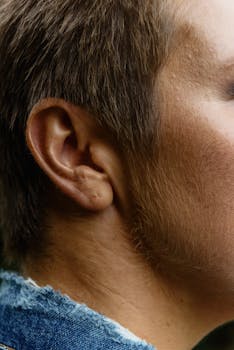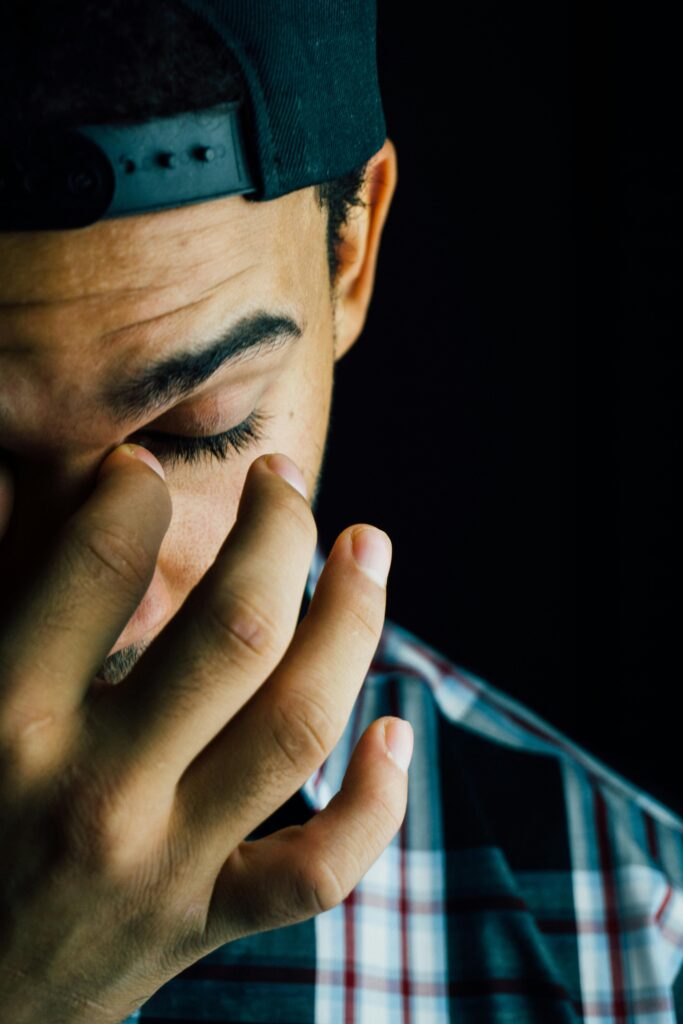Tinnitus
Developing tinnitus can be a scary and lonely experience. I’d like to share some of my own thoughts and experiences to explain how it’s been for me. Everyone has his/her own story – it can be very difficult at times – but there is a positive way ahead for most people.
01
I first noticed my tinnitus after a concert where I had been sitting in front of the trumpet section. It puzzled me since I didn’t perceive the sound as very loud, but I was suffering from a lot of stress at the time, and I soon concluded that these things had to be connected.


02
I had heard about tinnitus before I got it. I always thought it was a kind of horrible condition that happened to others. The fact that I had it, filled me with an unreal sense of horror – and I was subsequently propelled into a depression unlike anything I had experienced before. I remember staring into the bathroom mirror in disbelief. Is this really happening to me?
I remember thinking:
To have a sound in my ears is bad enough – but why does it have to be so nasty, the sound of a bus breaking inside my head?.
03
My mind and body were on red alert! I couldn’t stop thinking of the sound and how it would ruin my life – I felt unable to engage in anything and remained passive and miserable.


04
I used to hate not knowing whether the sound I heard was internal or external. Sounds that were quite similar to my tinnitus used to bother me especially, and I had to put my fingers in my ears constantly to know what was what.
05
It was in 1999. I didn’t have access to internet at that time. But I tried everything available to make the tinnitus go away: alcohol, Gingko Biloba, masking, sleeping tablets, massage, night guards, a 6 week yoga retreat, having a dentist changing my bite. I saw “specialists” in Freiburg, Malmö and London, and I saw a handful of therapists – to no avail.

Having tinnitus filled me with grief. I had lost something I would never experience again – silence. But in most cases grief is something that is likely to subside, given time – even if you think you’ll never be happy again.
06
I soon realised that I was able to intensify the sound by clenching my jaws and concluded that there was an obvious somatic connection. It made me hope that I would be able to control my tinnitus somehow, and by avoiding bad postural habits and stress, my discomfort might gradually subside.


07
In the beginning acceptance wasn’t an option. I was just desperate to get rid of it. And after 5-6 months, when my endeavours had come to nothing, I was feeling very, very low. Out of sheer exhaustion I basically gave up trying to look for cures, not knowing that this was the first step on my journey to habituation.
08
I found it very painful to sit in a crowd of people clapping. In the orchestra the sound of a clarinet was irritating, and sitting in front of a trumpet was impossible. Today I don’t really mind clapping or clarinets, but I simply cannot bear the sound of a trumpet close by.

A long time passed when I gradually eased into a life resembling what I had before, but it was hard to unload the feeling of being a tinnitus sufferer.

09
One morning, I think it was September 2002, I woke up realising I felt JUST the same about myself as I did before I developed tinnitus – that was an amazing moment.
Important aspects
Below are three important aspects of tinnitus management: habituation, acceptance and dealing with spikes. I will help you put these into context, applying them to your daily life.
Habituation
The process where the brain learns to filter out intrusive tinnitus, lowering the perception of the sound.
Acceptance
About accepting the fact of having tinnitus and allowing the habituation process to proceed.
Spikes
How to deal with the sudden onslaught of increased tinnitus and getting accustomed to it.
first talk is free
I can help
Contact me how to explore how I can help you
